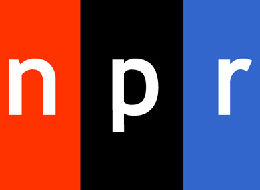NPR Weekend Edition - How Cleveland Could Rise Again
Submitted by briancummins on Sun, 05/30/2010 - 12:49.

NPR Weekend Edition with Scott Simon,
featuring an interview with Cleveland, Ohio Mayor Frank Jackson,
May 29, 2010 -
Web introduction -- In 1950, the population of Cleveland, Ohio, was almost a million people. Sixty years later, it's a third of that, due in part to the declining manufacturing base many formerly great cities have experienced. Cleveland Mayor Frank Jackson is touting a novel idea for rebuilding his city and tells host Scott Simon about lessons learned and visions for a more sustainable Cleveland.
Listen to the story here:
( categories: )
|
Mayor JACKSON: Well, that's what - I think that's my job
Thanks for posting this Brian - they should have interviewed you instead.
I can't listen to Jackson... it makes me embarrassed for the city - so I checked-out the transcript (below)... it still makes me embarrassed for the city just reading his words. I don't believe I have ever seen the word "ain't" quoted from a national political leader so many times in one brief media interview... and this is global. His most disturbing revelation... "the greatest advocates of change are the greatest defenders of the status quo. As we say on the street: Everybody talk a good game but ain't nobody going to bust a grape. Meaning that they can advocate for change and the right stuff but when it comes to doing, they ain't there, they dont show up. So the greatest advocates of change, whether it's conceptual, philosophical or whatever, are also the greatest defenders of the status quo. That is why some decades ago Cleveland was left behind."
Simon's response: Mm-hmm.
Mayor JACKSON: And if we want to defend the status quo, then we can cry over our beer somewhere about woe is us, because we'll be left behind again. And I do not intend that to happen on my watch.
SIMON: The mayor of Cleveland, Frank Jackson. Thanks so much for spending time with us in this magnificent office.
Mayor JACKSON: Well, thank you very much.
SIMON: Next week, Randall Jamison. He's been looking for work for 19 months and is worried and tired, but committed to his city.
Read the whole interview below - follow the link above to listen to this in the mayor's own voice, if you have a strong stomach...
I'm sure Simon was like what the fuck?!?! I imagine this was scheduled when Jackson was expected to have a signed contract with Sunpu Opto in hand, looking like a jolly green giant.Now he looks like an old grey fool, and us along with him...
Larkin hands the Mayor his Sunpu-Opto-cracked head back on a platter, in the PD this weekend, in his op-ed "Cleveland's narrow escape from Sunpu-Opto: Brent Larkin", tossing out the softball "When the mayor discovered it was amateur hour within his administration, he reverted to the real Frank Jackson: He did the right thing"... and offering universal amnesty for the Mayor with "So rancid was this -- on several fronts -- that I believe it had the potential to wreck Frank Jackson's mayoralty."
HAD?!?! That is one of the great understatements of Cleveland journalism history. Read your mayor, Larkin, and weep!
Disrupt IT
I found something to agree on
with Mayor Jackson: "But the greatest advocates of change are the greatest defenders of the status quo. As we say on the street: Everybody talk a good game but ain't nobody going to bust a grape. Meaning that they can advocate for change and the right stuff but when it comes to doing, they ain't there, they dont show up. So the greatest advocates of change, whether it's conceptual, philosophical or whatever, are also the greatest defenders of the status quo. That is why some decades ago Cleveland was left behind."
We need to change our form of city government, and find progressive doers that will change the status quo.
quote of the day,,,
"Everybody talk a good game but ain't nobody going to bust a grape", Cleveland Mayor Frank Jackson.
????????????????????????????????????????????????????????????
quote
I went in search of that quote and there are a lot of interpretations. After I stopped laughing, I knew that he meant "fight", that people talk a good game, but that is all they do. In this case, I agree. It is a rarity for me to agree with the man that I did not vote for, but he is pointing out the obvious here. When council representatives hold up legislation, it may be because they have not had their chance to slice and dice for their own reasons.
The mayor likes to sit in the dark.
The mayor likes to sit in the dark.